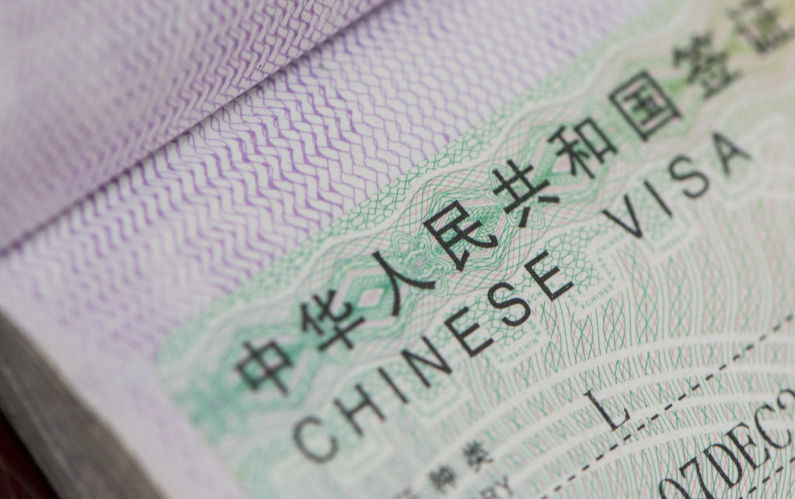Do Chinas leaders fully grasp foreigners concerns about the country?
March 15, 2024
Beijing has been slow to address the visa and e-payment woes of foreign travellers, and some officials remain complacent about the exodus of foreign investment.
Chinas Luckin Coffee, founded in 2017, is the countrys largest coffee chain, with more stores and higher revenue than Starbucks. Its cashless grab-and-go model, where customers order on the app and pick up at the store, is key to its success. But for walk-in customers, and overseas visitors who have neither the app nor the e-wallets it accepts, this model is a nuisance.
I bought a Luckin coffee recently in Zhuhai. The young barista behind what looked like a till refused to take my order verbally, insisting I order from the app. After finding the app and surrendering some personal information, I finally placed my order, leaving with a bad taste in my mouth.
For mainlanders, Luckin Coffee is a shining example of Chinas leadership in an increasingly cashless world, where people use digital devices to pay for everything from a taxi ride and restaurant meal to groceries and air tickets. Many Chinese are proud of carrying neither cash nor credit cards. Most business operators refuse to accept cash, let alone credit cards, even though it is against the law.
My Luckin Coffee encounter, however, highlights the cons of a cashless society, with daily life increasingly inconvenient for older, cash-using Chinese and overseas visitors just as the government is keen to welcome back foreign tourists and businesspeople.
After nearly three years of self-imposed isolation to combat Covid-19, China reopened its borders at the end of 2022. The initial anticipation that tourists and business travellers would flood back evaporated quickly.
Last year, foreign arrivals were down 60 per cent from pre-pandemic levels. Anecdotes suggest international arrival and departure areas of major airports are eerily empty, with passengers on international flights mostly Chinese.
Foreigners are deterred from visiting China for multiple reasons, from the difficulties of securing visas and moving around the country to rising international concerns about Chinas geopolitical tensions with the West.
There is also the predominantly negative Western media coverage of Chinas political and economic developments, partly driven by Chinas pivot to national security and its support for Russia after the invasion of Ukraine.
The problem with China these days is that every decision takes much longer to be implemented, and with great awkwardness and difficulty. China announced it had rolled out the red carpet to outsiders more than a year ago but its embassies and consulates still required visa applicants to go through cumbersome processes.
When the authorities finally realised foreigners were not flooding in, they started to take effective measures including granting visa-free travel to visitors from some Western countries, including Germany and France.
Recently, the government announced that identity verification would be simplified for travellers to link their international credit cards to e-wallets Alipay and WeChat Pay a process that is a major source of complaints from tourists and travellers.
Whether those inducements will encourage more to visit remains to be seen. The difficulties of spending money in China is just a minor concern for foreign travellers, businesspeople in particular.
Last year, foreign direct investment into China fell for the first time in over a decade, according to official data, as Western governments and businesses talk about de-risking and friend-shoring.
Chinese officials are apparently concerned, hence the slew of measures to reassure investors. The country needs foreign investment to bolster its slowing economy, not least because overseas firms employ tens of millions of Chinese workers.
But do Chinas leaders truly appreciate the multitude and scale of concerns foreigners have about the country?
It is hard to be sure. For instance, Chinas past success in attracting overseas investment have led some officials to develop a complacency bordering on arrogance: believing the countrys middle class of over 400 million is too big a market to miss, and that investors, although burned, would return.
The faster they dismiss that thought, the better. It is true that investors will go where the money is, irrespective of ideology. But it is equally true that the refrain that China has become uninvestable is constant and widespread because investors are worried about leadership and economic uncertainties.
If this thought is allowed to fester, it could be very bad for China. Beijing kicked out Facebook, Instagram, WhatsApp (all three now owned by Meta) and Google some years ago but they, along with other foreign social media companies, are doing a roaring business in the rest of the world.
Last Wednesday, Hong Kong released a summary of public views on the proposed Article 23 national security legislation which includes suggestions that Facebook and YouTube be removed, along with Telegram, Signal and other encrypted communication software.
It caused a major stir on social media, prompting the Hong Kong government to announce that it has no intention of banning any social media platform, saying those opinions were merely public suggestions.
The concerns should not be dismissed, particularly for Hong Kong. An unfettered flow of information is crucial for the city to maintain its status as Asias financial centre. Last summer, the citys bid to ban a controversial protest song sparked concern that American social media companies could choose to leave.
As Beijing and Hong Kong officials brace for a fallout from the Article 23 legislation, due to be completed soon, it is neither absurd nor sensationalistic to think Google or other foreign social media companies could leave the city, either of their own will or under pressure from their governments. In the unlikely event that they do, what would the future hold for Hong Kong?
Should Beijing fail to address investors fundamental concerns, letting the trickle of foreign capital flight become a flood, it will suffer greatly.
Republished from South China Morning Post, March 11, 2024
